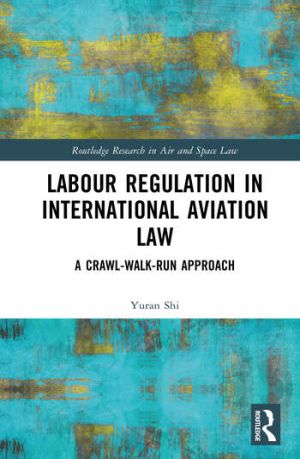
This book critically examines how international law can address the pressing issues of labour regulation in the airline industry, highlighting the insufficiencies of current international labour standards and air law in safeguarding workers’ rights and improving working conditions.
In an era of rapid growth and globalisation within the civil aviation sector, the labour landscape has become increasingly complex and hybrid, characterised by diverse business models, atypical employment arrangements, and weakened union influence. This complexity, coupled with gaps in international legal frameworks, leaves aviation workers vulnerable to inadequate labour protection and skewed bargaining power. By delving into social and technical deficiencies, the book underscores the challenges posed by forum shopping, fragmented employment structures, and the limitations of Comprehensive Air Transport Agreements (CATAs). Proposing a pragmatic "crawl-walk-run" approach, the book advocates for the progressive enhancement of labour regulations, starting with refining CATAs and advancing towards more comprehensive and enforceable standards. This seeks to harmonise decent work principles with the demands of a liberalised aviation market. Offering an in-depth exploration of landmark legal cases, international agreements, and State practices, this book provides a nuanced understanding of the interplay between international law and aviation labour.
This book will be of interest to researchers in labour law, international law and air and space law.